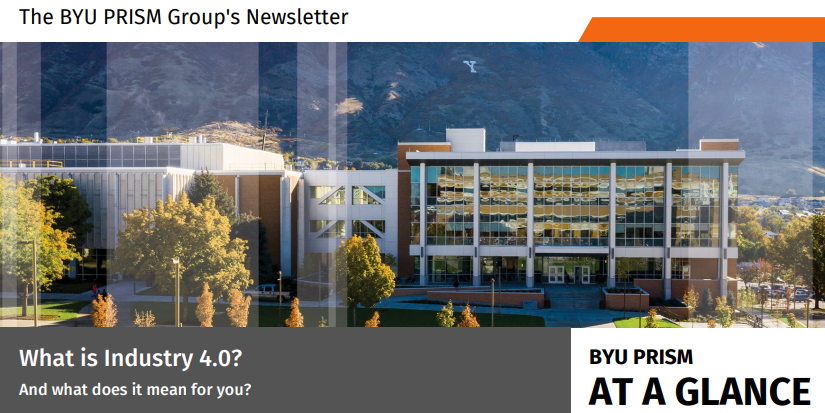PRISM Group at BYU
Process Research and Intelligent Systems Modeling (PRISM) is a collaborative research group for the application of innovative advanced process control, optimization, cybersecurity, estimation, digital twin modeling, machine learning, and data science.

Some of the recent research applications include:
The group includes graduate and undergraduate students who are taking a lead role in data science, machine learning, optimization, estimation, and control applications. The PRISM group also develops novel algorithms and techniques for large-scale and complex systems. These applications and techniques advance the area of Process Systems Engineering (PSE).

Increased computational resources and machine learning methods have triggered a new era of data science that has transformative potential across many fields, but these possibilities have yet to come to fruition because physics-based and other a priori information cannot be incorporated into the current machine learning algorithms. Hybrid machine learning developed in the BYU PRISM group overcomes current limitations by including physics-based activation functions and developing solver methods for hybrid deep learning.

John Hedengren leads the BYU PRISM group with interests in combining data science, optimization, and automation. He earned a doctoral degree at the University of Texas at Austin and worked 5 years with ExxonMobil Chemical prior to joining BYU in 2011. He served as a Society of Petroleum Engineers (SPE) Distinguished Lecturer for 2018-2019 and completed a sabbatical in 2020 to collaboratively develop combined physics-based and machine learned methods for optimization and automation. The online courses on programming, optimization, dynamics, control, and machine learning are accessed by 10,000 learners each day. The Temperature Control Lab (TCLab) is used at 70 universities and by 3000 professionals to learn programming, data science, dynamics, and control.

